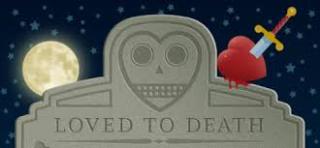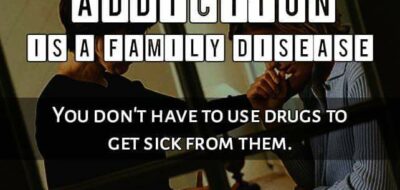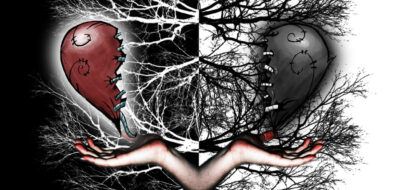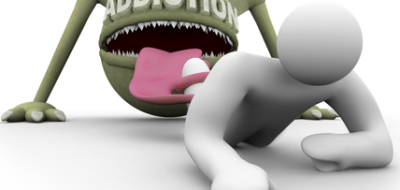While reading this post, you may feel upset, anxious, or awakened. I don’t write from a position of wishful thinking, but rather, from one of experience. I’m a recovering addict of 17 years, who works in the field of addiction. I’ve sat with hundreds of addicts and their families, and one thing, is clear.
Addiction needs help to progress and thrive. Without it – it can’t reach its full potential.
I’ve spent many years banging my head against the wall, when it comes to talking with the addict’s family. I see, what they don’t. Their son or daughter, or spouse, is in treatment. This person shares in group, boasting to their peers about how they can manipulate their family. They get feedback from their peers and the counselors – regarding their manipulating behaviours and entitlement. They’re forced to look at the impact of their addiction and they don’t always like it. They might phone their family and complain about the rules, or say something like treatment is a waste of time, or someone isn’t treating them right. The addict wants to leave treatment and needs help. They need a place to go, money or a ride to get there, etc, and the family often provides this!
Just recently a woman came to get her son. He had talked openly in group the day before, boasting, about how he was playing his Mom. I told her that, but she wouldn’t believe me. She said she knew what her son needed better than anyone else. I begged her not to take him with her. He wasn’t ready and he wouldn’t make it. I told her he would use. She said he’d promised her, he wouldn’t. I reminded her that his words and actions weren’t matching up. He was promising not to use and walking out of treatment. His actions matched those of a relapse, not one of sobriety. Within 48 hours this young man died from an OD of heroin. His Mom found him. My heart breaks as I write this. I can’t imagine the pain this woman must be in. I can’t… it stops my breath.
Almost always (not always, but ALMOST always) when the family changes their role in addiction, the addict is forced to change. I seriously believe we are treating addiction wrong. I don’t think we should treat the addict first. I think the addict would have a far better chance, if we started with family therapy first, and then brought them into treatment.
This is why I write. I’m passionate about helping addicts and their families overcome the obstacles of addiction. I write from personal and clinical, experience. I write, because addicts are dying and their families are suffering. I write, because I’m telling… on addiction.
Sincerely, Lorelie Rozzano.
I LOVE you to DEATH.
I never failed to be amazed, at how sick the family members of addicts/alcoholics become. If you didn’t know about addiction, you might think it was the person sticking needles in their arm, or drinking themselves to death, who had the problem.
But strangely enough, when you look behind the scenes at the world of addiction, the addict might be the least ‘sick’ of the bunch.
Addiction requires an enabling system ( yes, I know I sound like a parrot, but maybe if I say it enough times, enabling, enabling, enabling… the word just might be heard)
I speak with family members, who tell me, “I don’t want to upset them” That’s code for, “I don’t want to feel upset”
No more excuses people! Let’s just say it like it is. Enabling is a selfish, self-serving, behavior. It’s not about ‘helping’ the sick person get well. It’s about you avoiding confrontation, or uncomfortable feelings.
Enabling is also a form of using. When I say ‘yes’ I experience instant gratification, (euphoria) for long term misery.
Enablers focus on the addict or alcoholic, noting how much they have changed. They like feeling in control and often get a rush from ‘helping.’
An enabler’s illness progresses alongside the addiction, going through the same phases.
Phase One:
Enabler is upset about loved one’s behaviour. They set rules and boundaries threatening to leave, (or ask your adult child to leave) if the alcoholic/addict repeats the behaviour.
Phase Two:
Addict/Alcoholic repeats the behaviour. Enabler, rants at addict/alcoholic, stating they are ‘ruining their life.” Enabler warns, if you do it again I will leave/you’ll be kicked out, for sure!
Phase Three:
Addict/Alcoholic repeats the behaviour. Enabler doesn’t leave, or kick them out. Rather they grow more bitter and resentful over time, living in what they once said they would not. They are obsessed with addict/alcoholic to the cost of all other relationships. Their emotional well being is firmly entrenched with the addict. If the addict is okay, they are too. Enablers are by this time, defending the abusive, dishonest, manipulative behaviour exhibited by the ‘sick’ one.
Enablers adopt the same essential symptoms as the addict. It becomes habitual for them to minimize, justify, rationalize, deflect, avoid, isolate, blame, excuse and tolerate, abusive behaviour. They practice denial and are often in self-pity, continuing the endless cycle of delusional attempts at ‘helping.’
Both enabler and addict have lost the ability to be honest, or see themselves with any clarity. Both will be angered when confronted on their behaviour.
Some enablers spend their whole lives waiting for the other person, to change.
Enablers can experience weight loss/gain, high blood pressure, ulcers, headaches, migraines, insomnia, depression, heart disease and stroke. Many enablers will become workaholics, shopaholics, or develop a relationship with prescription medications, or alcohol, themselves.
Enablers, to put it bluntly, can love their addict to death.






